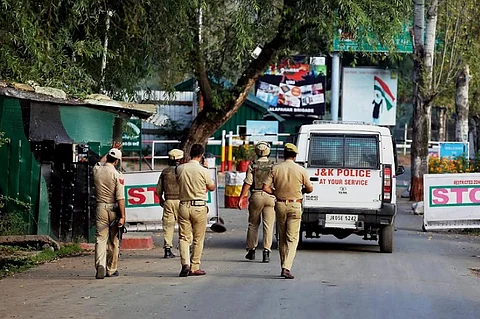

As the death toll of soldiers killed in the fidayeen attack on an Indian Army Brigade Headquarters in Uri, Jammu and Kashmir rises to 18, the clamour of voices supporting a stern military action against Pakistan has also gained more prominence. While no one has claimed responsibility for the attacks, fingers have been pointed at the neighbouring country for obvious reasons.
Prime Minister Narendra Modi has already promised that those involved in the attacks will not go unpunished.
But according to the experts, for all its talk, the government will try to resist the temptation of a knee-jerk military response and instead hold onto its long standing policy of ‘strategic restraint’.
Security analyst and editor-in-chief of the strategic affairs magazine, WordSword, Col. Anil Bhat (Retd), who, bemoans India’s lack of aggression in its foreign policy towards Pakistan says, “This government (BJP) made a lot of noise about not letting such attacks take place after the Pathankot attacks, but none of that has culminated in any punitive action. How long can India be held hostage to Pakistan’s nuclear threat? It’s time we send boots on the ground and make them understand that such proxy attacks won’t go un-warranted.”
Bhat believes that the current situation in Kashmir and the attack in Uri are related to each other and need to be tackled together rather than looking at them as separate incidents.
Earlier today, Union home minister Rajnath Singh called a high-level meeting with National Security Advisor Ajit Doval and top officials from the ministries of Home and Defence, the Army, the paramilitary forces and the chiefs of intelligence agencies briefed Singh on the latest in the Kashmir Valley as well as along the Line of Control.
Sunday's attack on 12 Infantry Brigade, one of the deadliest attacks in more than two decades of conflict in the Valley, was carried out by four alleged Jaish militants, who, according to reports, had infiltrated across the LoC hours before launching the attack.
The attack came at a time when Kashmir has been witnessing a fresh wave of protest that has left over 86 people dead and thousands injured. Observers in the valley believe that the attacks render into the background the rather indigenous nature of protests in Kashmir after Burhan Wani’s killing. The focus now has shifted elsewhere and could even be a cue for security forces to use more force against the protesters.
Since the killing of Burhan Wani on July 8, most of the counter insurgency operations had to be halted as protesters would come out of their homes to thwart such operation by throwing stones at forces and help militants escape. Curtailing the protest had become the priority of the security agencies. But all could change now and security forces might be forced to use iron fist approach as pressure mounts on them, which could in turn lead to further civilian casualties.
According to Valley-based political analyst professor Gul Wani “the next few days will be crucial on how things will go on from here and what sort of response the state will come up with.”
South Kashmir, which has been the centre of the current protest, has witnessed militants joining protest rallies and openly addressing civilians which has gained them popular support. Wani, however warns that any efforts to take out militants in the Valley at the present moment could turn out to be detrimental and provide fuel for further protests.
“The protests will not fizzle out on their own. The government needs to take everything into consideration before making a move. We have been witnessing support growing for militants, be it the number of people attending funeral procession of militants or by helping them escape from military operations like we have witnessed in the last two months.”
In such a precarious situation, Wani believes "cohesive diplomacy" is the only way forward.